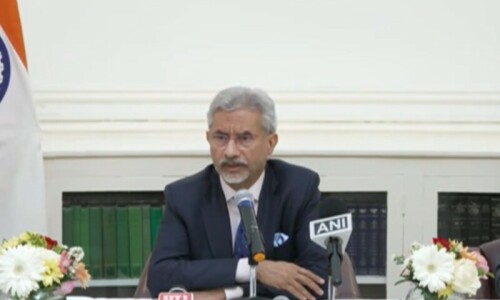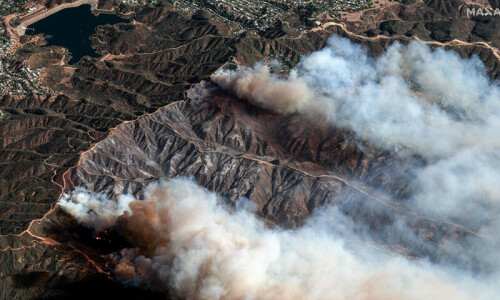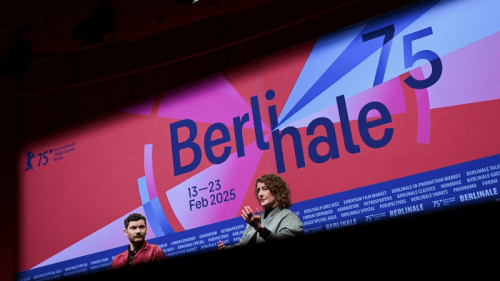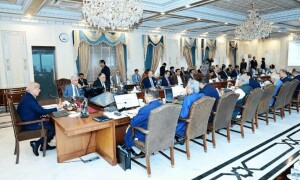BHURBAN: Pakistan Institute of Development Economics (PIDE) — a public sector think tank — has concluded that the country’s institutional processes and frictions cost Pakistan almost 40 per cent of its gross domestic product (GDP) and the exercise of political power by public representatives exacerbate inequalities across the country.
On the conclusion of the two-day conference ‘Research for Social Transformation and Advancement’ (Rasta), economist and PIDE Vice-Chancellor Dr Nadeem Ul Haque said fresh findings, ideas and things have come to light at the event that required policymakers to take note of.
Dr Ahmed Waqar Qasim, Senior Research Economist at PIDE, in his study ‘Sludge: The Administrative Burden’ found that “in various sectors sludge at the national level costs Pakistan 39pc of its GDP”.
PIDE defines the term sludge as excessive and unjustified frictions that make it difficult for the people to get things done or achieve what they want as such frictions make processes unnecessary difficult and lead to unwarranted interaction between citizens and the public institutions.
IBA academics say inequality in resource distribution giving rise to inter-regional economic disparities
This involves excessive paperwork, unnecessary NOCs to be obtained, excessive hierarchy involved in approvals, centralised decision-making and rent-seeking attempts, which cost time and money and frustrates people by depriving them of access to goods, opportunities, and services. This imposes costs upon the economy in terms of waste of resources and the opportunity costs incurred. This discourages investments, lowers productivity and therefore constrains GDP growth while imposing psychological costs as well frustration, humiliation and stigma.
Dr Faiz Ur Rehman of IBA Karachi in a joint study “Political Dynasties and Local Economic Development in Pakistan’ noted that despite considerable attention paid by previous governments to the underdeveloped regions, intra-regional economic disparities were on the rise in Pakistan. “While there can be several reasons for exasperating inter-regional inequality across regions, political institutions and politicians may explain a significant size of this inequality,” he noted, adding that politicians exercise considerable de facto political power to redirect resources towards their regions which had a substantial cost for least developed regions.
Pakistan is among those countries where the share of elected political dynasties in parliament is one of the highest in the world. It represents more than 50pc of the elected legislature since 1970, he said adding that since 2008 the debate on the subject intensified at many levels, but little evidence or research was ever presented.
The study finds that constituencies with non-dynast winners perform better than the dynast winners in terms of local economic development. The reason for the worse performance of dynasts could be associated with lower political participation, besides other factors. The report recommended, “abolishing discretionary funds and minimising the influence of legislators over PSDP spending can be an effective deterrent to cut down the divergence between the performance of dynasts and non-dynasts”.
Professor Adeel Malik of Oxford University in his study ‘The Political Economy of Non-Tariff Protection in Pakistan’ examined the impact of political influence on trade protection in the country and noted that the GSP engagement with European Union entailed a major harmonisation of regulatory standards and led to a dramatic increase in the application of non-tariff measures (NTMs) across the entire manufacturing space.
He found that most-favoured nation (MFN) tariffs were consistently higher for politically organised sectors. However, a clear divergence emerged between politically organised and unorganised sectors from 2008 onwards when regulatory duties were introduced. In a crux, regardless of how the sectors are defined, politically influenced sectors have higher levels of trade protection in the guise of import duties, particularly after 2013.
Published in Dawn, March 30th, 2022














































